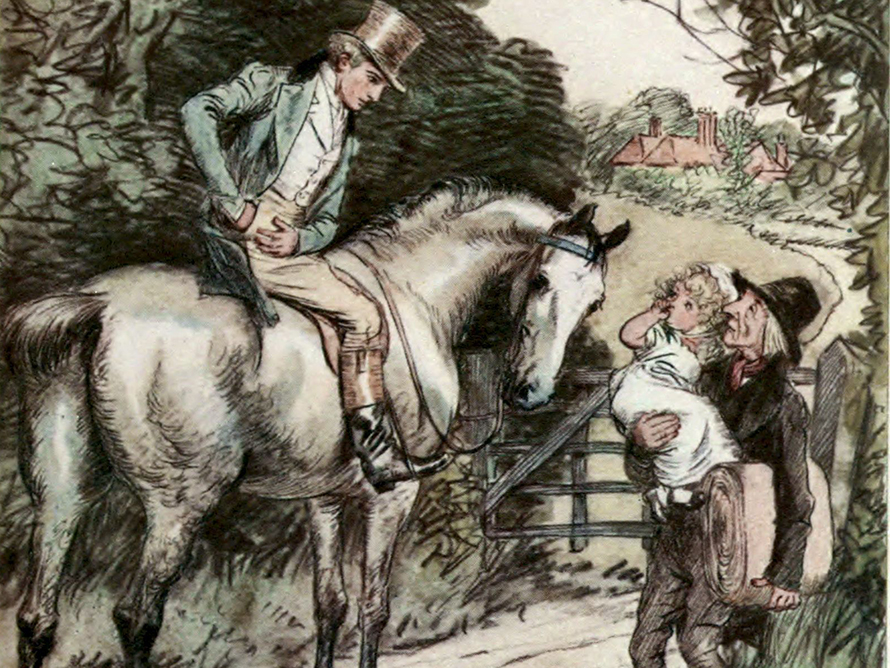Silas Marner is a novel by mid-19th Century British author George Eliot. It tells the story of Silas Marner, a weaver who is framed for a crime that he did not commit and forced out of his community at a slum named Lantern Yard. Settling near the rural village of Raveloe, Silas is also initially rejected by his new community, and withdraws into a state of seclusionBeing away from other people. in which his only comfort is the wealth that he accumulatesBuilds up. from weaving. However, after his gold is stolen, and he becomes the father figure of a baby girl mysteriously arrived at his doorstep, Silas relearns the value of human connection, love, and community.
Silas Marner

Glossary
Seclusion - Being away from other people.
Accumulates - Builds up.
Yearning - An intense feeling of longing for, or wanting, something.
Redeemable - Something that can be saved.
Superficial - On the surface only.
